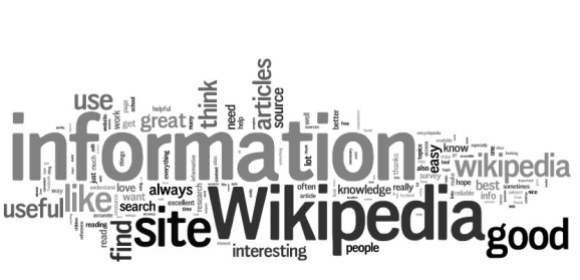Wikimedia Foundation sites are the fifth most popular web property. So when we conducted our Readers Survey, we expected to hear from our readers that they valued Wikipedia as a reliable source of online information. But we were still pleasantly surprised to see the overwhelming positive feedback from readers mixed with a deep appreciation of Wikipedia and its community for the existence of the free and easily available online encyclopedia that offers a wide breadth of content. As expressed by some of the more than 2000 readers who took the opportunity to leave a free-form comment at the end of the survey: “love the site” “blessing” “thank you for existing and “you can find everything in Wikipedia.” Praise for Wikipedia was a common thread among many readers. “It is great.” “It is a living organism – constantly evolving.”

The real credit for building Wikipedia goes to the thousands of editors who volunteer hours every month editing Wikipedia, and as one reader from Egypt put it: “thank you to all who have contributed in this great work.” Readers who had never edited, but were aware that volunteers wrote Wikipedia articles acknowledged that they were embarrassed that they had never edited Wikipedia.
Although readers from all age groups read Wikipedia, with the average reader being 36 years old, Wikipedia remains an important tool for school students. “Great for school work,” said one. Acknowledging the role of Wikipedia as the first stop for information for school work, a reader in India said: “I wish I had Internet and Wikipedia when I was in school in the 70s. My grades would have sky rocketed.” Parents also acknowledged using Wikipedia for helping children with their school work.
Some readers took the opportunity to point out features that they believe can be improved on Wikipedia, like search, the ability to improve the reading experience through customizable fonts and more audio and visual content to facilitate understanding of complex topics. We heard similar needs from users when we conducted user experience research in India, Brazil and the US. We have improved search functionality on the mobile site, and other features to improve the reading experience are on the product roadmap.
To our surprise (this was the first time participants thanked us for providing them the opportunity to participate in a survey), many readers told us that they loved participating in the study since it helped them expand their knowledge about Wikipedia (e.g. learning about features that they had not been aware of, or about WMF’s non-profit status). “From today, I will certainly be using Wikipedia more, excellent survey, it made me understand things I have been missing,” said a reader from the UK.
Mani Pande, Head of Global Development Research
Ayush Khanna, Data Analyst, Global Development
We recently conducted an online survey of Wikipedia readers, limited to 250 participants each in 16 countries. This is the last in a series of blog posts summarizing our findings. If you are interested, you can find out more about the methodology of the survey here.

Can you help us translate this article?
In order for this article to reach as many people as possible we would like your help. Can you translate this article to get the message out?
Start translation